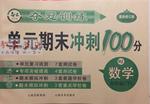题目内容
Dear editors (编辑), I’m a slow (慢的) student in my class. Most of my classmates are much better than me. So I get very stressed out. It’s difficult to keep on working hard and it’s really not fun. And I think although I spend much time studying for the tests, I can’t get good grades. My father gives me some help sometimes. He tells me not to worry about it. But what do you think I should do? I’m a slow (慢的) student in my class. Most of my classmates are much better than me. So I get very stressed out. It’s difficult to keep on working hard and it’s really not fun. And I think although I spend much time studying for the tests, I can’t get good grades. My father gives me some help sometimes. He tells me not to worry about it. But what do you think I should do? Xia Ming |
| Dear Xia Ming, Many famous people are not so good at the age like you. Edison, the famous scientist, had a bad headache for his studies when he was a 12-year-old boy. But everyone knows that he did a lot for the people in the world. And Newton had the same story like him. When you are feeling stressed out, just smile (微笑) and take a deep breath (深呼吸), then try your best. You should believe tomorrow is another day. Thumbelina |
A. his classmates B. his life C. his study
小题2:Thumbelina gave __________ examples in the letter.
A. one B. two C. three
小题3:Thumbelina wrote about those famous people to __________.
A. make Xia Ming feel better
B. make Xia Ming laugh
C. show how much she knows
小题4:Which is NOT true according to the letter?
A. Xia Ming has fun studying at school.
B. Edison is famous in the world.
C. Xia Ming’s father always helps him with his study.
小题5:“Tomorrow is another day” tells us __________.
A. it’s the weekend tomorrow
B. tomorrow is second day
C. there are hopes in our lives
小题1:C
小题2:B
小题3:A
小题4:A
小题5:C
小题1:细节理解题,根据文中语句“I’m a slow (慢的) student in my class. Most of my classmates are much better than me. So I get very stressed out.”理解可知。
小题2:细节理解题,根据文中第二个文本框的语句理解可知。
小题3:理解归纳题,根据文中语句理解可知。
小题4:细节理解题,根据文中语句“It’s difficult to keep on working hard and it’s really not fun.”理解可知。
小题5:理解归纳题,根据文中语句理解可知。

练习册系列答案
 夺冠训练单元期末冲刺100分系列答案
夺冠训练单元期末冲刺100分系列答案 新思维小冠军100分作业本系列答案
新思维小冠军100分作业本系列答案 名师指导一卷通系列答案
名师指导一卷通系列答案
相关题目
